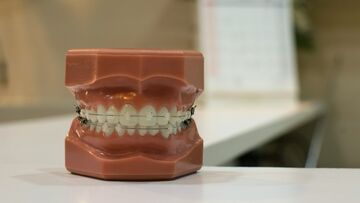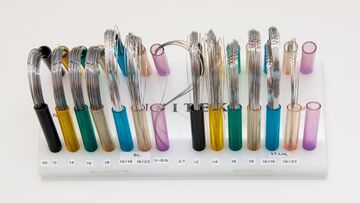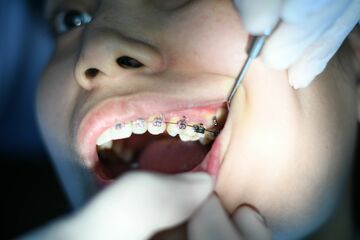
If you are concerned about your teenager’s teeth, the first thing you should do is discuss this with your family dentist. Orthodontics are often recommended if a child’s teeth haven’t emerged in the proper alignment or they are showing signs of overcrowding.
Orthodontics is about more than just aesthetics; this treatment can address issues with bite alignment and will also make the teeth easier to care for. Properly aligned teeth are much easier to brush and keep clean, so orthodontics can set a teenager up for a lifetime of improved oral health.
In this guide, we’re looking at the role of orthodontics for teenagers, what options are available and how you can select the right one for your teenager. We’ll also look at the difference between private and NHS orthodontics, so you can decide if it would be better to wait for treatment or go private.
What is orthodontic treatment?
Orthodontic treatment is more commonly known as braces. Braces help to adjust the alignment of the teeth to make them straighter and better spaced. Braces can also adjust the bite so that the top and bottom jaws work together better. This can improve overall health by making it easier to chew and digest food.
We often think of braces as being purely aesthetic, but this isn’t the case. They can correct a wide range of health problems and impact wider health.
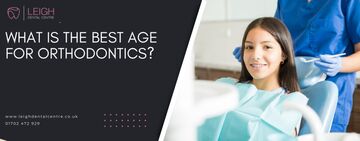
What is the best age for orthodontics?
Dentists will start to monitor a child’s teeth for the early signs that they need braces once their adult teeth begin to emerge. It’s possible to use orthodontics to make sure the teeth emerge correctly, or your dentist could intervene at the first signs of overcrowding. Most children will get braces between the ages of 12 and 18. If you choose to wait for NHS orthodontics, you will have less choice over when orthodontic treatment begins. This means that your child’s teeth may get worse before treatment can begin, which can extend the treatment time.
Can my teenager have braces on the NHS?
Braces are available on the NHS for under 18s in cases where a dentist determines they are a grade 4 or above on the Index of Orthodontic Treatment Need. Not all children will meet this criteria, and it can be frustrating for parents to hear that their children’s teeth are misaligned, but not enough to qualify for treatment.
The Index of Orthodontic Need looks at factors such as dental health and aesthetics to determine if a child should begin treatment. In borderline cases, it will be down to your dentist’s discretion to determine if they should recommend the child for treatment.
If your child is determined to be a good candidate for treatment, they will not start treatment straight away. They will have to go on a waiting list to wait for NHS orthodontics. Some children will wait up to 2 years to start treatment and others will age out of the system and become ineligible for free treatment while they are waiting.

Alternatives to NHS braces
If your child is not eligible for NHS treatment, or if they are at risk of ageing out of the system, there are alternative treatments available. Choosing private orthodontics can help you to access the treatment you want when you want it.
With private treatment, you’ll have greater control over the start date and the style of braces used. This could mean making the most of discreet orthodontic options like clear fixed braces or Invisalign removable braces.
Removable braces like Invisalign are a popular choice for teenagers as they are less discreet and can be removed to eat, drink and care for the teeth. This means far less maintenance and the wearer doesn’t have to adjust their diet to suit their braces.
Another perk for teenagers is that they can continue to play contact sports without worrying about their braces.
Benefits of private orthodontics
If you’re considering private orthodontics for your child, there are some distinct benefits to keep in mind.
There is a wider choice of orthodontic systems, including Invisalign, tooth-coloured fixed braces and lingual braces, which sit behind the teeth. This can help teens who are self-conscious about their appearance to enjoy orthodontic treatment without worrying.
You can start treatment when you want, rather than waiting to be called to start treatment. If your teen wants to wait until after a special holiday or get started straight away, this can easily be accommodated with private orthodontic treatment.
When you don’t have to wait to start treatment, the treatment will often take less time. If the treatment is delayed by waiting lists, the teeth may continue to move out of alignment. This means that when treatment starts, there is more work to do to get them back into the correct alignment.
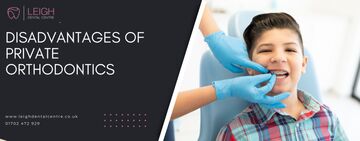
Disadvantages of private orthodontics
The main disadvantage of private orthodontic treatment over NHS treatment is the additional cost. NHS treatment is free for those under 18 and those under 19 in full-time education. This can be a significant saving for many parents.
However, there are often payment plans available that will enable you to spread the cost of treatment.
Another disadvantage specifically for removable aligner systems such as Invisalign is that it relies on commitment from the wearer. Invisalign needs to be worn for 20 – 22 hours per day for the treatment to be effective. If your teen is forgetful or likely to try to avoid wearing their aligners, this won’t be the right treatment plan for them. In this instance, fixed braces will be a much better choice.
Conclusion
Teenagers may be eligible for orthodontic treatment on the NHS, but some parents choose to skip the waiting list and opt for private treatment.
There are many options available for straightening the teeth, so it’s important to be aware of all the avenues available to your child. Rather than caving to trends for invisible aligners like Invisalign, think about what would be the most effective and successful treatment plan for your child.
Book an appointment with our team today to learn more about teen orthodontics.
Contact us to make an appointment
Exclusive Offer
Airflow stain removal from our hygienist
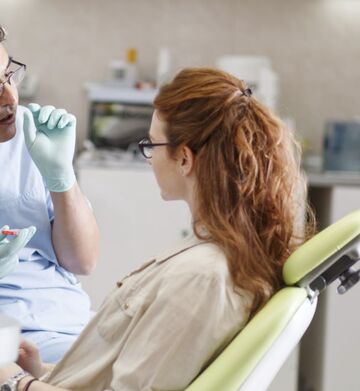
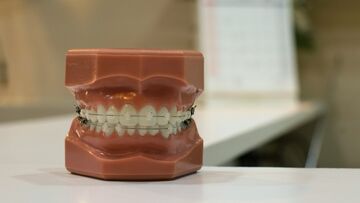
Benefits of Orthodontic Treatments
10.04.2024
Time for you perfect smile?
Book your consultation today
When visiting our practice you know you are visiting the dental professionals trained to the highest standards. You are greeted by our welcoming staff, who share the same aim, to make your visit with us as comfortable and stress free as possible.

